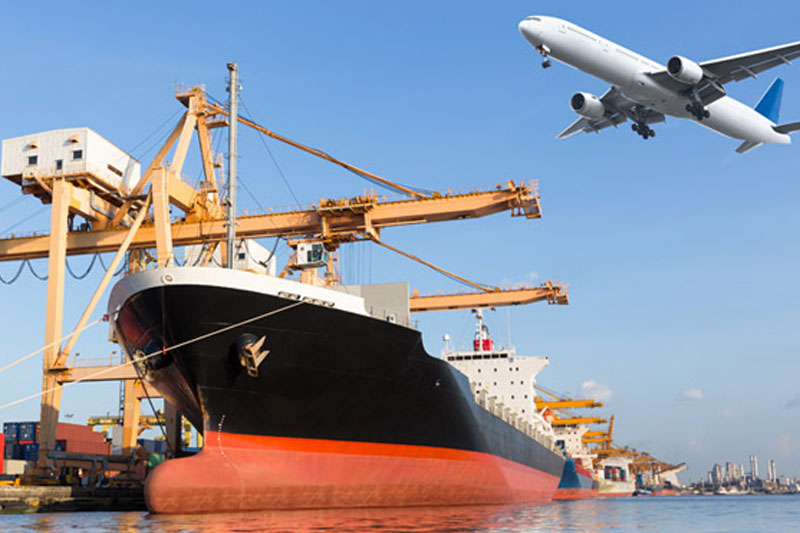International trade between the United Kingdom and Dubai continues to grow as businesses look to expand into the Middle East. Many companies want to ship from UK to Dubai for both commercial and individual purposes, but navigating regulations and processes can be challenging without proper guidance. This article provides a practical overview to help businesses manage shipping smoothly and efficiently.
Understanding Trade Between the UK and Dubai
Dubai is a global hub for trade, connecting Europe, Asia, and Africa through its advanced logistics infrastructure. The emirate is known for its strong demand for consumer goods, construction materials, technology, and luxury items. For UK businesses, the established economic relationship with the UAE ensures reliable transport routes, making Dubai a highly attractive destination for exports.
Preparing Goods for International Shipping
Before dispatching goods, businesses must ensure their items are packaged securely to withstand long-distance transport. Packaging should not only protect the product but also meet international standards. Labels must clearly state the contents, weight, and handling instructions. Documentation such as invoices, packing lists, and certificates of origin should be prepared in advance to avoid customs delays.
Customs Regulations and Documentation
Every shipment entering Dubai passes through customs clearance. Authorities require accurate paperwork to assess duties, taxes, and compliance with regulations. Common documents include:
- Commercial invoice with product description and value
- Certificate of origin to prove where goods are manufactured
- Packing list with details of items inside each container
- Import permits for restricted or regulated goods
Failure to provide complete documentation can lead to shipment delays, fines, or even seizure of goods. Businesses should work with freight forwarders or customs brokers to ensure compliance.
Shipping Methods and Transit Times
There are two primary methods for transporting goods from the UK to Dubai:
- Air Freight: Suitable for urgent or smaller consignments, air freight takes around 3–5 days. While faster, it is often more expensive.
- Sea Freight: A cost-effective option for bulk shipments, sea freight typically takes between 20–30 days. Businesses can choose between full container load (FCL) or less than container load (LCL) depending on the volume.
Choosing the right method depends on product type, urgency, and budget. Many businesses use a combination of both to balance cost and speed.
Location Focus: Shipping to Dubai
Dubai is strategically located in the United Arab Emirates, with access to one of the busiest ports in the Middle East—Jebel Ali Port. This port serves as a gateway for shipments not just into Dubai, but across the GCC region. Dubai International Airport also handles large volumes of cargo daily, ensuring rapid delivery for air freight. Its free zones allow businesses to benefit from streamlined customs processes, tax advantages, and efficient distribution networks.
Duties, Taxes, and Costs
Most goods shipped from the UK to Dubai attract import duties, which are usually set at 5% of the item’s CIF (Cost, Insurance, and Freight) value. However, some categories may be exempt, while others may face higher charges depending on their classification. Businesses must also account for VAT at 5% on imported goods. Additional costs include freight charges, insurance, and handling fees. Planning for these expenses in advance ensures smoother operations and accurate pricing for customers.
Insurance and Risk Management
Transporting goods internationally always carries risks such as damage, theft, or loss. Taking out cargo insurance is highly recommended to protect against potential financial losses. The type of cover should match the value of goods and method of transport chosen. Insurance provides peace of mind and ensures businesses are not left exposed to unexpected setbacks.
Choosing the Right Logistics Partner
Working with a reliable logistics provider is crucial. A trusted partner can handle documentation, customs clearance, warehousing, and final delivery in Dubai. They can also advise on the most suitable routes, costs, and compliance requirements. Partnering with experienced professionals reduces the risk of delays and ensures goods reach their destination on time.
Final Thoughts
Shipping goods internationally requires careful planning, especially when entering markets like Dubai. By understanding customs regulations, preparing documentation correctly, choosing the right freight method, and working with reliable logistics partners, businesses can make the process efficient and cost-effective. Whether shipping consumer products, industrial machinery, or luxury items, taking a strategic approach ensures smoother trade and stronger growth opportunities in Dubai’s thriving market.




